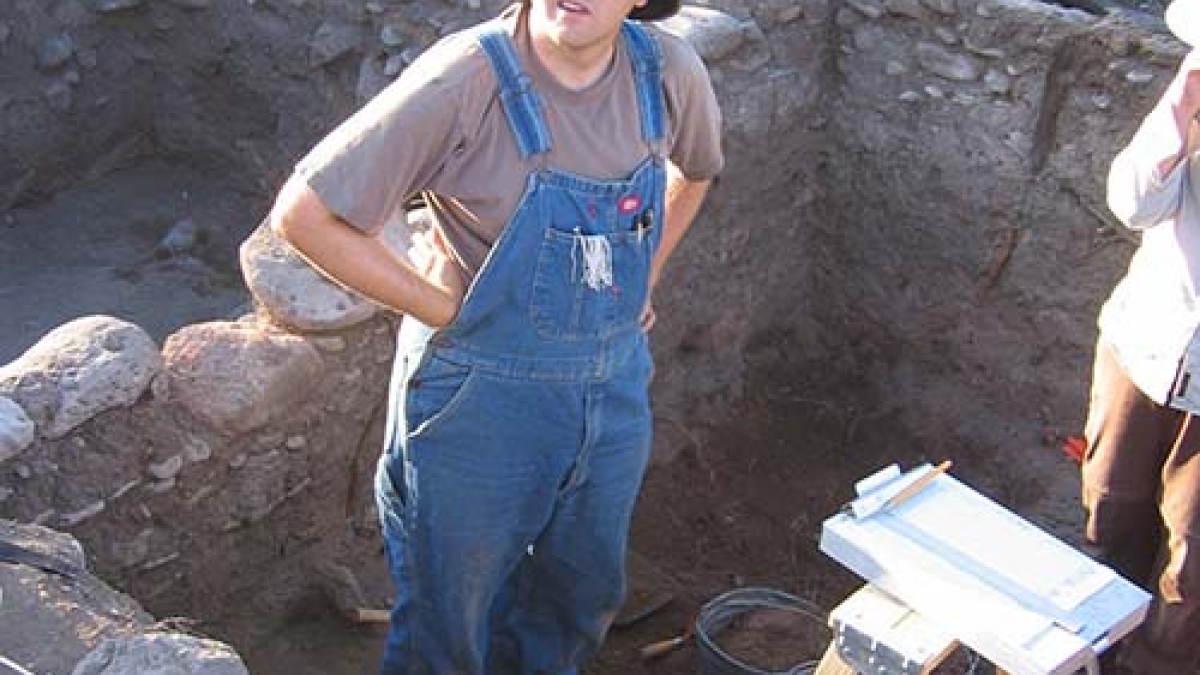Alum continues award-winning ASU archaeology tradition

Arizona State University alumnus Matthew Peeples has earned the 2014 Society for American Archaeology’s (SAA) Dissertation Award. In doing so, he is carrying on a proud ASU tradition.
Since 1988, the society has granted the award 25 times, eight of those times to ASU graduates. University of Michigan graduates have claimed the award three times and University of Arizona graduates have won twice. No other school has more than one recipient.
Peeples received his award Friday, April 25, at the SAA’s annual business meeting and awards ceremony in Austin.
The Society for American Archaeology is an international body of 7,000-plus professional, student and avocational archaeologists dedicated to researching and protecting the archaeological record of the Americas.
Peeples graduated in December 2012 with a degree in anthropology, focusing on archaeology. His dissertation is titled “Identity and Social Transformation in the Prehispanic Cibola World: A.D. 1150‒1325.”
During a single generation in the late 13th century, people in a portion of Arizona and New Mexico went from living in clustered communities consisting of a number of closely spaced residences to massive planned towns, some with more than 1,000 rooms. Peeples explored how humans negotiated this dramatic social transformation to create new and enduring social groups and identities.
Taking a comprehensive approach, he combined archaeological analyses of many lines of evidence – such as technological practices, architecture and ceramics – with theoretical models and methods based on empirical studies of contemporary and historical social movements and political mobilization.
He argues that the period of social transformation in the Cibola region, despite occurring in a very different context, was governed by dynamics similar to well-documented contemporary social and political movements.
Peeples would like those working in the social sciences to view his research as an example of how archaeological case studies can be effectively used in comparative research on social and political reorganization.
He also hopes that archaeologists see his work as a new and useful perspective for understanding social transformation in the archaeological record by relating the mechanisms involved in social change to the nature and scale of social groups and identities.
“It might seem that identity would be something that archaeologists would not be able to get at,” says archaeology professor Keith Kintigh of the School of Human Evolution and Social Change in the College of Liberal Arts and Sciences. “However, Matt has leveraged social theory from political science and sociology, and executed innovative and persuasive analyses ... to achieve exciting new understandings.”
Kintigh served as Peeples’ committee co-chair, along with Michelle Hegmon. The professors have a long history with SAA Dissertation Award winners. Kintigh was committee chair or co-chair of five of the ASU winners, and Hegmon was committee chair or co-chair of three.
Peeples says he couldn’t have asked for better role models and advisers than Kintigh, Hegmon and committee member Katherine Spielmann. He also counts President’s Professor Margaret Nelson as an influential mentor, and credits the ASU archaeological field school she and Hegmon directed in New Mexico with turning him toward Southwest archaeology.
These days Peeples is working for Archaeology Southwest, a Tucson nonprofit with a history of site protection, research and outreach that spans more than three decades. It is something of a dream job for Peeples, who has long admired the organization.
“I’m very happy that my new position allows me to continue to conduct big-picture research across the greater Southwest while also working toward the long-term protection of important archaeological sites and landscapes,” he says.
Currently, he is handling several regional-scale projects and partnering with colleagues at various institutions. He is particularly enthused about a collaboration with University of Arizona archaeologist Barbara Mills and colleagues at Archaeology Southwest focusing on using methods and models from social network analysis to explore the nature of social interaction and exchange in the pre-contact Southwest.
In the short term, Peeples wants to expand the issues raised in his dissertation through a comparative approach applied to other parts of the Southwest. He is interested in developing new ways of using archaeological data to provide a long-term perspective on the ways people form social groups, develop institutions and negotiate social change.
“Over the long term, I hope to work toward giving archaeologists a seat at the table in broader interdisciplinary discussions regarding issues of identity and collective action,” Peeples explains. “Archaeology has a lot to offer in this area, and could foster new and exciting directions in social science research by providing information on a broader array of political and economic settings than have typically been considered.”